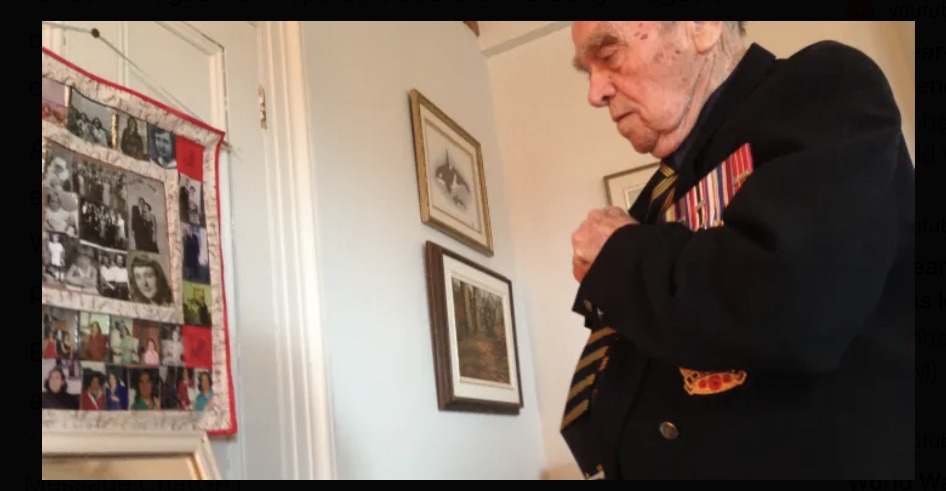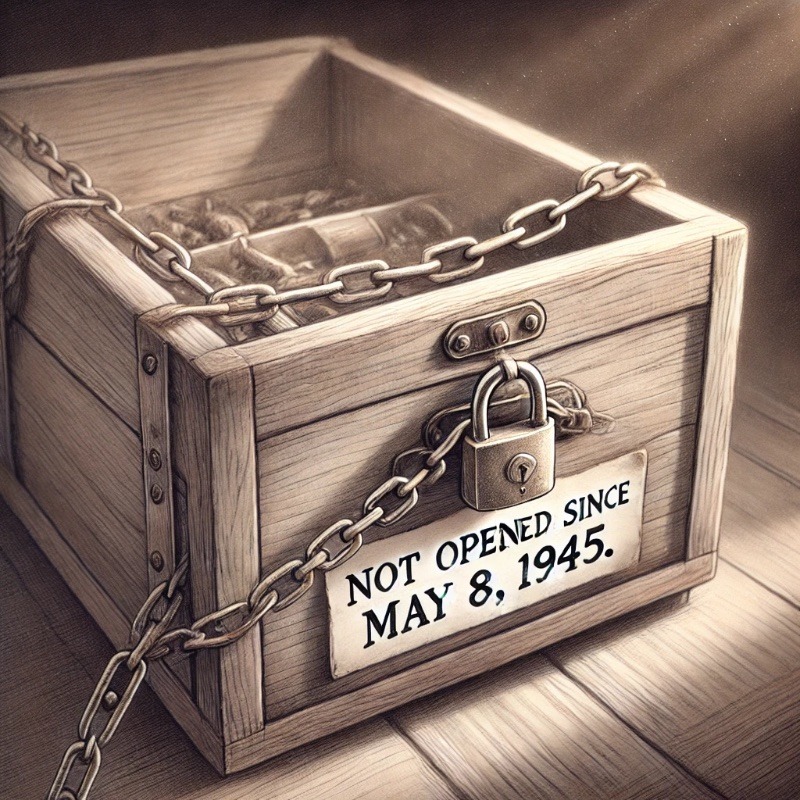
‘Sometimes, you’re going to have to be courageous.’ One WWII veteran’s reflection’ Global News
The Silent Generation: Why WWII Veterans Didn’t Share Their Stories

WWII Veterans’ silence is fully expressed in the Netflix film Number 24, Norwegian resistance leader Gunnar Sønsteby describes his memories as organized into five drawers: the top three he accesses regularly, the fourth occasionally, and the fifth—containing his wartime experiences—remains tightly shut since May 8, 1945, the end of the war. This metaphor powerfully illustrates why so many World War II veterans chose not to share their stories.
The Weight of Trauma
Combat subjects individuals to extreme violence, loss, and moral injury, resulting in profound emotional scars. Many WWII veterans returned home with memories that were too painful to confront. Lacking a name for what they experienced, they found ways to cope—often by locking those memories away and focusing on building a future. For them, silence wasn’t avoidance; it was survival. an excellent article is at the National WWII Museum in New Orleans.
Cultural Expectations and Stoicism
Society in the mid-20th century valued resilience and progress. Veterans were expected to reintegrate into civilian life without complaint, rebuild their lives, and contribute to their communities. The prevailing mindset was to “move on” rather than dwell on the past.
Yet, their silence was not one of bitterness but of purpose. Gunnar Sønsteby dedicated his life to rebuilding his country, just as many American veterans returned home and quietly shaped their communities. My father, Jack Wilson, was no exception. He became deeply involved in his church, helped raise funds to build a new sanctuary, and played an active role in constructing a children’s hospital in Seattle. Their generation believed in giving back—channeling their energy into building rather than reliving the past.
The Bond of Shared Experience
For many veterans, the only ones who truly understood their experiences were fellow soldiers. While my father rarely spoke of the war, I recall a moment when he reunited with a fellow tanker from Officer Candidate School. As they talked over drinks, it was as if an unspoken understanding passed between them. They didn’t need to explain—they had lived it.
Protecting Loved Ones
Jack’s experience came to be defined by the harsh battles, devastation, and the emotions after combat for those brothers-in-arms killed and wounded.
These warriors seldom shared stories of these events, particularly with those closest to them. Perhaps they wanted to protect the people they loved most from the harsh realities of the largest and most deadly war the world had ever known. Perhaps it was just too painful to relive. Many memories fade with time, but the trauma of war can haunt a soldier forever.
Some veterans remained silent not for themselves, but for their families. They had witnessed horrors that they didn’t want to relive or impose on their loved ones. Instead of recounting the nightmares, they focused on creating a peaceful home life.
The Passage of Time and Changing Perspectives
Decades later, some veterans started to share their stories, realizing that if they didn’t, their experiences could be lost forever. Yet for many, that “fifth drawer” stayed closed. My father, Jack Wilson, was one of them.
A Personal Reflection
Despite being a decorated war hero, my father rarely spoke about his wartime service. Even his closest friends, like John Bohlinger, only knew that he had been a tank commander. The rest of his experiences remained locked away.
As John Bohlinger so poignantly noted in his heartfelt letter, my father’s bravery, leadership, and deep love for his family shone through in his letters home, even as he faced unimaginable horrors on the front lines. Below is John’s letter—a touching tribute to the man Jack was, both on and off the battlefield. It’s a reminder of the quiet strength that so many veterans carried, and why their stories, even when difficult to share, must be preserved for future generations.
Letter from John Bohlinger
January 18, 2025
Dear John,
Thank you for sending me your book Jack’s Story. I loved it! In all the years we knew your mother and father, they never spoke about the war, other than Jack was a tank commander in WWII.
Jack was a real war hero, earning the Silver Star and Purple Heart. He was a person all men would hope to be if in combat: BRAVE, COURAGEOUS, and yet fearful. He truly felt God’s presence and protection.
In the letters he wrote to your mom and his parents, he showed his sense of love and sensitivity—the love he had for them and how the horror of war affected him. He had a job to do: defeat the German Army.
I can only imagine how I would react to the sight of starving concentration camp prisoners and the sight of friends being blown up. It was a heavy load for anyone to carry.
Jack was made to be a leader; the U.S. Army gave him the opportunity to excel. I am surprised he did not make the Army a career. He was the sort of person I would follow into combat. Had he stayed, I think he would have mustered out as a general.
Love and respect,
John
Discover Jack’s Story
Jack Wilson’s journey—from commanding tanks in pivotal battles like St. Vith to witnessing the aftermath of the Holocaust—is a testament to courage, resilience, and humanity. His story is brought to life through Jack’s Story: 7th Armor Division Tank Commander World War II, which combines over 100 of Jack’s letters with historical research to paint an intimate picture of the war.
Historian Steven Smith, author of 2nd Armored Division: Hell on Wheels, recently reviewed Jack’s Story and described it as:
“A terrific contribution to the literature of World War II” and
“A much-needed account of the 7th Armored Division’s role in the war, especially at St. Vith, where their actions were critical in halting the German advance.”
What are your thoughts on the sacrifices made by the Greatest Generation? Please share in the comments below, and let’s come together to honor their memory.
